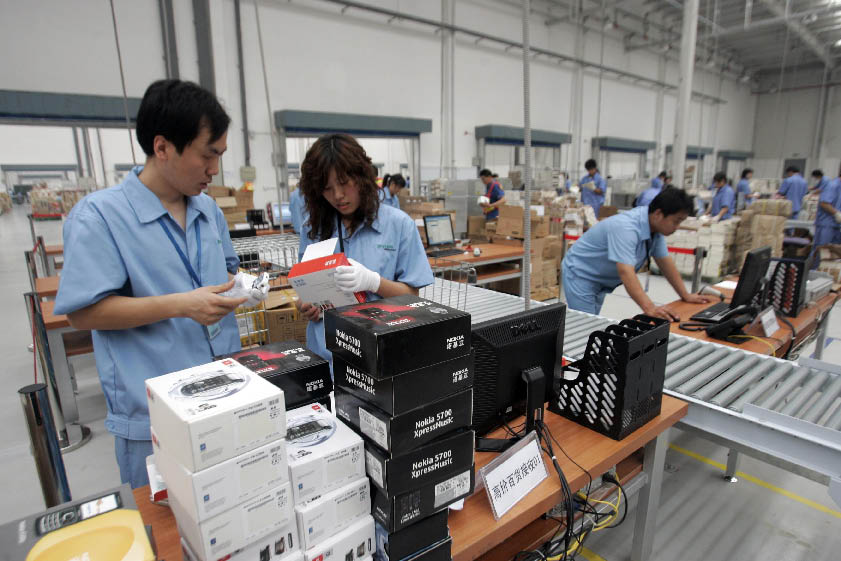| E-Commerce Takes Off
By staff reporter ZHANG MAN
Staff at Amazon Logistics Center double-checking goods prior to dispatch to customers. China Foto Press
PRIOR to opening her e-store, 28-year-old Yu Jing was an office worker in a joint-venture company in Zhuhai, Guangdong Province, working a steady 9-to-5 job. At the beginning of June, spurred by her dream of a free and happy life, she finally quit the job to open an e-shop on Taobao, specializing in silver accessories and Korean cosmetics.
When working her regular job, like most white-collars working in China’s first- and second-tier cities, Yu Jing used to buy nearly a third of her daily items – food, clothes and accessories – online, the lion’s share of her purchases being made on Taobao. Yu Jing remarks that her colleagues and friends regularly purchase goods and services this way, and quite a few have tried combining their regular work with running an e-shop via Taobao as a sideline.
Today, Chinese online shopping and Internet startups are growing at breakneck speed, and even famous enterprises and service providers are scrambling to get a piece of the online action. E-trading has become the star of the Internet world. ”In America, e-commerce is the side dish but in China it will be the main course,” comments Ma Yun, CEO and founder of the Alibaba Group, the largest e-commerce platform in China.
The Mighty Mouse
“During the dotcom bubble in the 1990s, at every mention of the development of e-commerce in China, we used to complain about how it had got off to a late start and that it was still primitive here, about the shortcomings of our Internet devices, inadequate accessibility, insecure capital flow and unreliable logistics chains. We even criticized consumers and their old-fashioned attitudes for not daring to try online shopping,” says Jing Linbo, vice director of the Institute of Finance and Trade Economics, Chinese Academy of Social Sciences.
|

